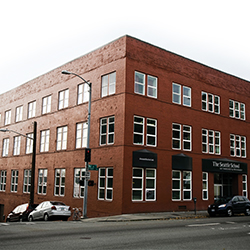Money. Can’t live with it, can’t live without it. Starting graduate school (and moving to a new city) can put a strain on your budget. Many of you have talked with us about the fears you have around this financial transition. To help ease the stress of figuring your finances out, here are some resources and ideas that help make a limited budget less problematic. You can do this! All you need is some creativity and a bit of advance planning.
Low Cost Healthcare
- Take care of the basics and research affordable healthcare options in your area. Look for community health clinics that offer services for sliding scale fees, based upon your income.
- See if you qualify for State-run health insurance. Use healthcare.gov to find your state’s official health insurance program website.
- To save on medicine, visit USA Drug Plan to print a free discount card that is accepted at many pharmacies across the country.
For Seattle-area folks, here are a few other healthcare options:
- Neighborcare Health
- Bastyr Center for Natural Health
- Zoom Care
- Dandelion Apothecary: Herbal teas, natural medicines, hypoallergenic soaps/lotions, plus a knowledgeable staff to advise you!
Look for Deals for Play, Eats, and Services
- Living Social
- Groupon
- Make use of student discounts! From You Need a Budget to Spotify to Microsoft Office to Headspace, many apps and subscriptions offer discounts if you can prove you’re a student (often by inputting the name of your school or your Seattle School email address). Websites like My Uni Days and Student Beans list retail stores that offer student discounts, too.
- Enjoy free activities: look into public readings and events at your local library, or opt outside by hiking or spending time at a local park.
Keep Parking Costs Down
If you’ll be commuting to school this fall, the cheapest route is to walk, bus, or bike, but if you must drive, there are some ways to shave a few bucks off here and there.
- Street parking near campus is Free, but limited.
- The Department of Transportation is pleased to share with you the Final Plan for street parking around the future Judkins Park Station! Please see attached flyer and their updated website here: https://www.seattle.gov/transportation/projects-and-programs/programs/parking-program/judkins-park
- Don’t forget to carpool whenever possible.
- Ride the bus or cycle into school (more info on riding the bus in a future post).
Save on Groceries
Food Stamps
If you’re a full-time student and work at least 20 hours per week, you can qualify for food stamps. You can find the directory of state programs of the SNAP program here.
Compare Local Grocery Stores by Price
Try an app like Flipp to compare prices of common items so you know you’ll get the best deal. Or do your own price recon by comparing receipts after shopping trips!
Here’s a quick rundown and rating of notable grocery stores in the Seattle area:
- Grocery Outlet: This is the cheapest option by far, though product selection varies, and you often won’t be able to get everything you’re looking for. It’s worth going here first and then filling in the gaps elsewhere.
- Fred Meyer: Go-to store for big grocery lists/when you also need to pick up housewares, toiletries, etc.
- Safeway: Middle-of-the-road pricing and selection
- Trader Joe’s: Great for quick grabs to bring to class with you or for buying groceries for one or two people
- Uwajimaya: Located in the International District, this is the largest Asian supermarket within the Seattle city limits. For better prices and a larger selection you’ll need to travel north or south to find an H Mart (see below).
- QFC: Owned by Kroger, tends to be pricey, but has great sales
- Metropolitan Market: Real nice, real pricey
- PCC/Whole Foods: These are your standard natural foods grocery stores, with the high cost you’d expect. But they’re oh-so-nice and also support local vendors.
- H Mart. Need somewhere to pick up gochujang? This is the place.
- WinCo. It’s employee-owned and has all the groceries you might need as well as an amazing bulk dry goods section (think flour, sugar, dried fruit, cereal, nuts, candy, spices, etc.) where you can purchase exactly what you want and pay based on weight. Overall, prices here are significantly lower than any supermarket in Seattle. Just make sure to bring cash or a debit card, no credit cards are accepted. (outside Seattle)
- Costco. If you haven’t already got a membership to this Kirkland-based bulk savings store, it’s worth the cost for the gas and toilet paper savings alone. They also have great deals on surprising items like car tires and batteries and prescriptions.
Managing Your Coffee Addiction
Free Coffee at The Seattle School
In the Commons area of The Seattle School, there is drip coffee brewed throughout the day for our community! If we’re out and you’d like to help by making a pot, just ask someone at the front desk to show you how, and remember the directions are labeled by the machine (don’t try to guess your way through it, it can be a messy process).
Pick Up Punch Cards for Your Favorite Shops
Many coffee shops have cards that get stamped or punched each time you buy a drink. Usually, you get the 10th drink free. Not every place does this, but here’s a list of a few Seattle spots that do:
- Bang-Bang Cafe
- Macrina Bakery
- Chocolati
- Stumptown Coffee Roasters
- Miro Tea
Prepaid Giftcards that Factor in a Free Drink
- Lighthouse Coffee
- Cafe Vita
- Uptown Espresso
- Fiore
- Muse
Furnishing Your New Home
For those of you moving to Seattle or another location, you may find that moving is easier and cheaper if you don’t bring everything you own with you. Once you’re here, there are plenty of ways to furnish your new place on a tight budget.
- IKEA: Don’t forget to break for meatballs!
- Thrift Stores: Use this national thrift store directory to locate stores in your area that offer second-hand and used items.
- Craigslist: We all know about Craigslist, but don’t forget to check the Craigslist Free section, which might lead you to a gold mine.
- Offer Up: This is the Pinterest version of Craigslist, that allows you to buy and sell locally from people in your area!
- Nextdoor: This is a great resource to connect with people in your neighborhood. All the time people are giving away free things and recommending services (plumbing, house cleaning, etc.).
- Buy Nothing Project: Another great social networking site dedicated to bartering goods with people in your area.
So there you have it. Being on a student budget doesn’t mean you have to succumb to Ramen and nights of boredom—just plan ahead and get creative. And don’t forget to share your own ideas and money-saving tips with your cohort!


